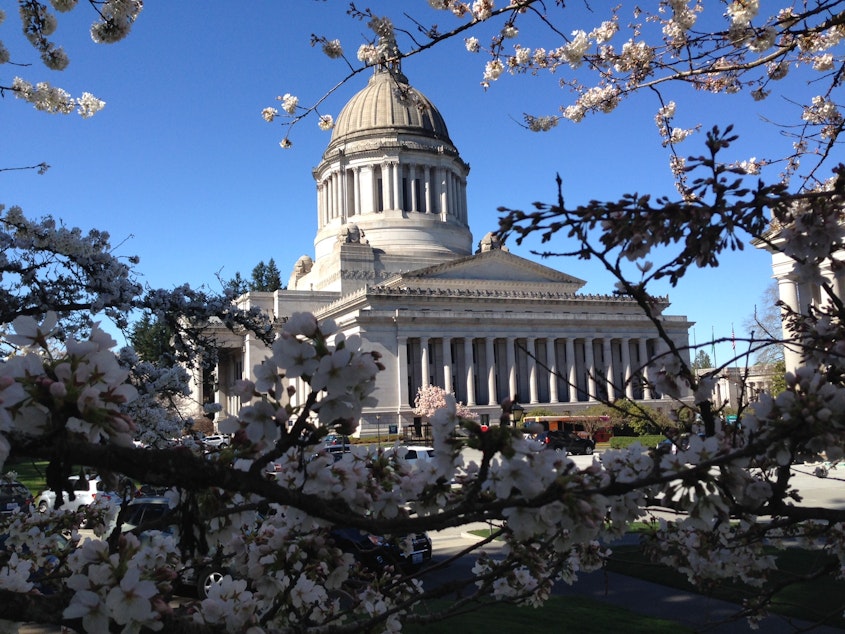Housing funds, public safety on negotiating table in final weeks of WA's legislative session

As Washington's legislative session enters its final weeks, key debates remain unsettled on public safety and health policies – as well as how much new funding the state will put toward affordable housing.
Lawmakers dubbed this year's legislative session a "big one" for housing – something reflected in Democrats' recently announced budget proposals in the House and Senate that each include hundreds of millions in new funding earmarked for housing and homelessness.
Sen. Christine Rolfes (D-Bainbridge Island) says the overall new funding included in the Senate's proposed construction and operating budgets are a major boost from previous state spending, including an additional $400 million for the state's Housing Trust Fund.
"So it's a very robust housing and homelessness program or strategy," Rolfes said.
The House also included major multi-million dollar investments in the Housing Trust Fund and other projects targeted at addressing homelessness and related services for youth and families.
Sponsored
But as lawmakers negotiate the exact dollar amounts over the next few weeks, they're facing high pressure – including from Gov. Jay Inslee – to spend even more on affordable housing. Inslee proposed a $4 billion bond plan that would be subject to voter approval in order to help pay for it.
House Speaker Laurie Jinkins (D-Tacoma) says lawmakers are actively exploring options to support more new spending than what was included in their initial budget plans.
"Those dollars probably don't represent everything that's necessary in order to really make advancement in the housing crisis that we have," Jinkins said.
The Senate's proposals did not include Inslee's bond plan, while House Democrats included a nod to it in their initial budget pitch. But top Democratic leaders say they're considering an increase in taxes on real estate sales instead – an idea widely opposed by top Republicans who say new or increased taxes aren't necessary.
"This is not going to help," said Lynda Wilson (R-Vancouver). "We don't need the money because there's plenty of money rolling in, still."
Sponsored
Inslee has said he isn't ready to back an alternative plan in the place of his proposed $4 billion bond idea, but that he's open to other options.
But lawmakers may not land on a decision on exactly how much new funding will go to housing – or where those dollars will come from – until the final days of the legislative session, as they debate other key policy changes.
On public health and safety
High-profile bills focused on police pursuits and the way Washington handles drug possession and addiction treatment continue being debated in both chambers, with members from each party opposing or supporting the bills for very different reasons.
Lawmakers are working on a bill commonly referred to as the "Blake fix" after a Washington Supreme Court decision struck down the state's previous drug possession laws as unconstitutional in 2021. Lawmakers approved new, temporary drug possession penalties shortly after that decision, but the current law expires later this year.
Sponsored
After a House committee eased back on potential new legal penalties approved by the Senate, House Republican Leader J.T. Wilcox (R-Yelm) says he thinks the legal penalties in the drug possession bill should be tougher.
"It's probably worth passing but it has become more of a token than an actual fix," Wilcox said.
But some House Democrats say this year's bill doesn't do enough to destigmatize and decriminalize drug addiction. Rep. Tarra Simmons (D-Bremerton) says the bill doesn't recognize different avenues people take to recover from substance use disorder.
"There are multiple pathways to recovery – it's not just treatment," she said. "We're putting people into this dinosaur era of possibilities."
Rep. Darya Farivar (D-Seattle) voted against the bill in committee, saying it doesn't center the voices of people with lived experiences with addiction and the legal system.
Sponsored
"This is a public health crisis and I don't believe that incarcerating individuals is the way we're going to get out of this crisis," Farivar said.
Lawmakers are also still split on how to handle changes to regulations on police car chases, with some members from either party opposing that bill for doing too much or not going far enough. Rep. Gina Mosbrucker (R-Goldendale) voted to advance the bill in committee, but said that current law and the bill being considered don't fully address safety issues and concerns raised by law enforcement who say the law is too restricting.
"We can do better than this," she said.
Democratic leadership has been slow to move on the measure, while top Republicans have pressed the issue all session long. The Senate approved the bill just before a key cutoff deadline earlier this session, providing the legislation a last minute lifeline to continue being considered after the House didn't move its version of the bill.
Inslee has said he would sign a bill making changes to the current police chase laws if a bill makes it to his desk, but its fate in the House remains unclear.
Sponsored
This year's legislative session is scheduled to end April 23.
Copyright 2023 Northwest News Network

